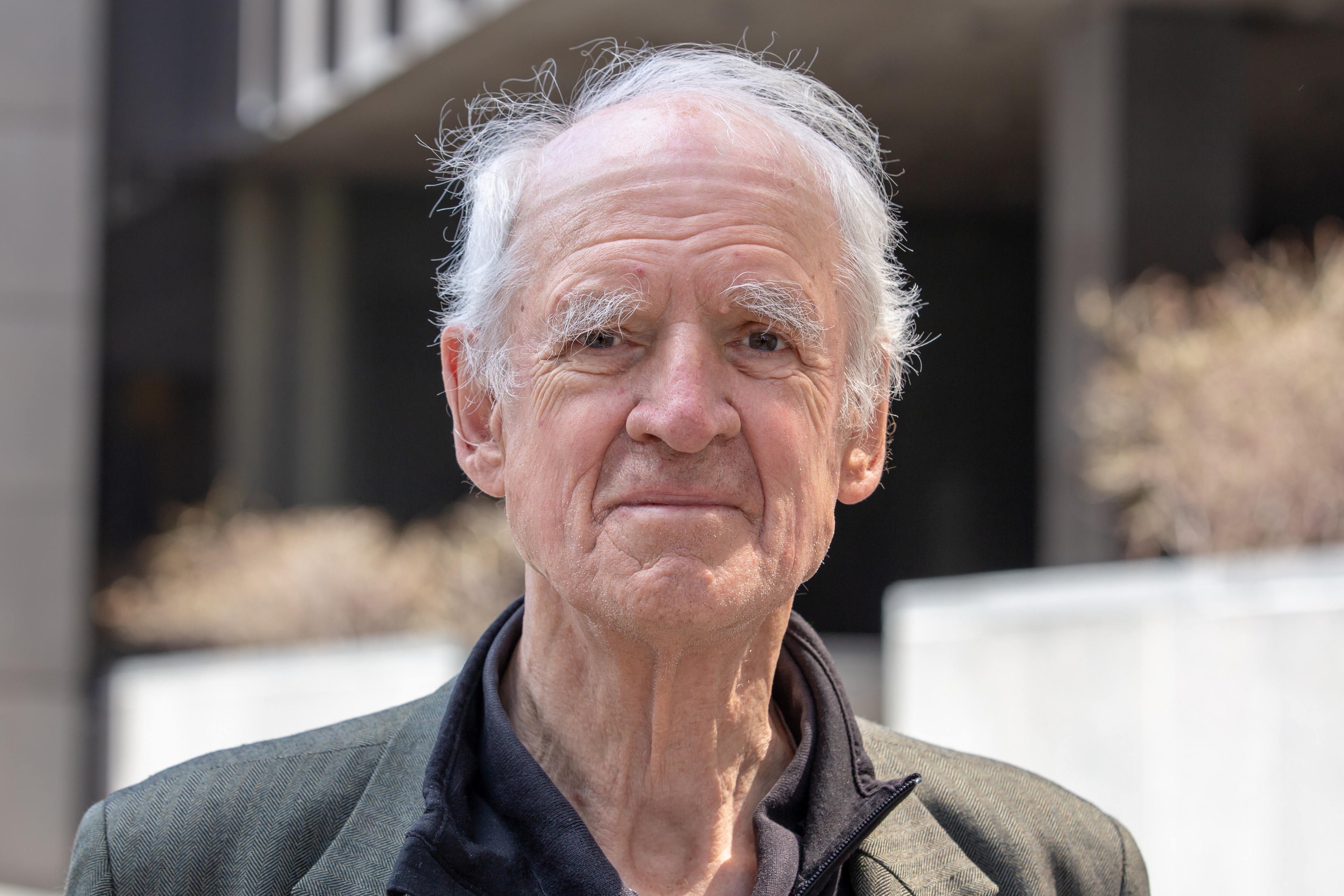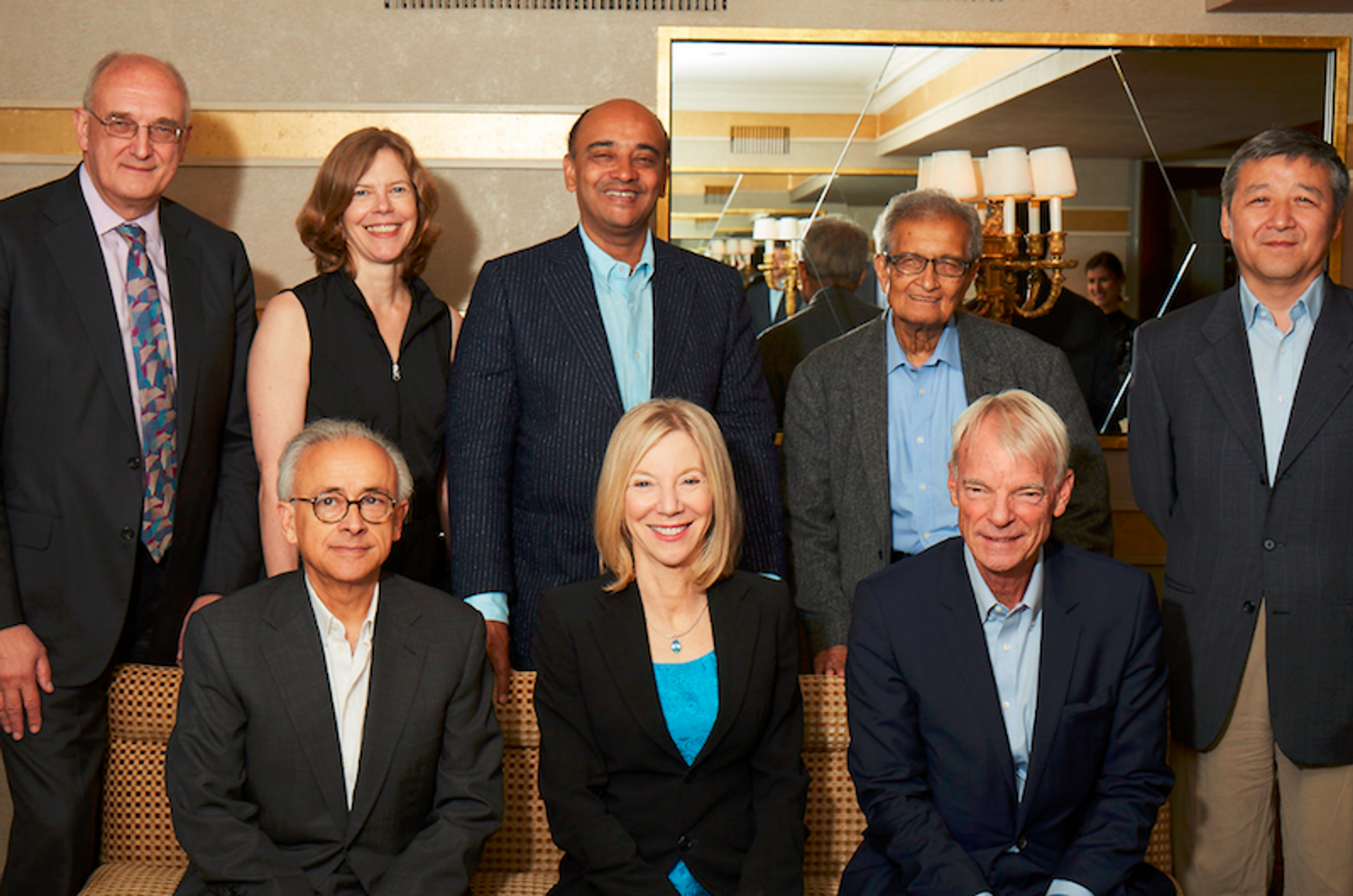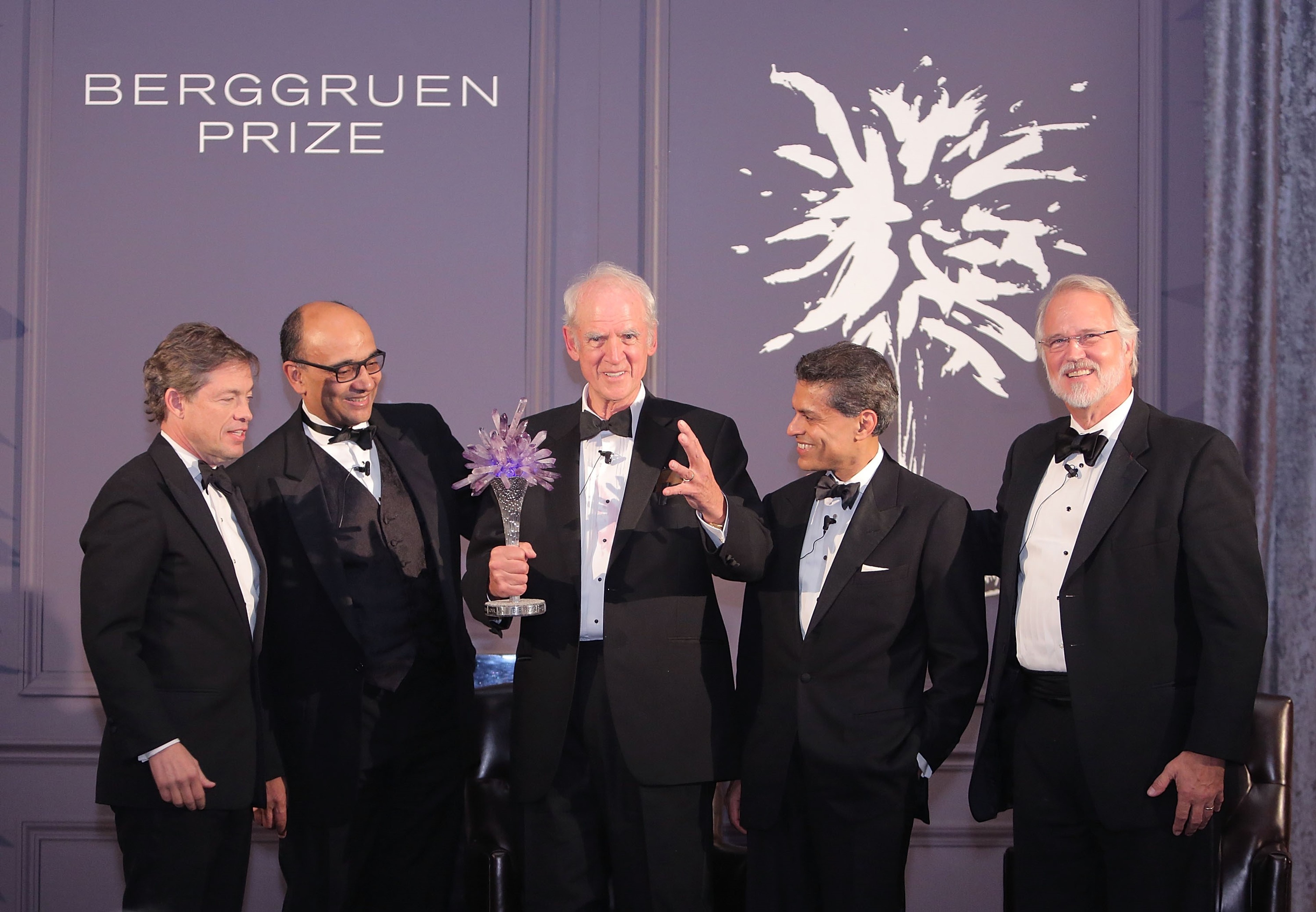Announcing the 2016 Berggruen Prize Winner: Charles Taylor

Canadian philosopher Charles Taylor has been named the first winner of the Berggruen Prize. The $1 million award from the Berggruen Institute is given annually to a thinker whose ideas are of broad significance for shaping human self-understanding and the advancement of humanity. To learn more about the prize please visit the Berggruen Prize page.
One of the world’s foremost philosophers, Taylor is influential throughout the humanities, social sciences and in public affairs. He has been a leading voice for the unity of Canada and the preservation of the distinctive identity of Quebec. And he is a global leader in deepening understanding among different intellectual traditions and civilizations.
Among the most influential of Taylor’s many books are Explanation of Behaviour (1967), Sources of the Self (1989), and A Secular Age (2007). His newest book is The Language Animal (2016). Taylor’s work urges us to see human beings as constituted not only by their biology or their personal intentions, but by their embedding in webs of meaningful relationships. As he wrote in 1994, “We define our identity always in dialogue with, sometimes in struggle against, the things our significant others want to see in us. Even after we outgrow some of these others—our parents, for instance—and they disappear from our lives, the conversation with them continues within us as long as we live.”
The recipient of the Berggruen Prize is selected by an independent jury, which was chaired this year by NYU Professor Kwame Anthony Appiah.

A selection of quotes from jury members explaining their decision to award the first Berggruen Prize to Charles Taylor is below:
“Charles Taylor is a brilliantly appropriate recipient, because he has changed the way people all over the world think about some of the most basic questions in human life.” – Nicolas Berggruen, Chairman of the Berggruen Institute
“Taylor’s own life exemplifies the wisdom that philosophy celebrates, bringing intellectual humility as well as remarkable knowledge to personal relationships, teaching, scholarship, and public engagement.” – Craig Calhoun, President of the Berggruen Institute
“Charles Taylor’s work links ethics, political philosophy, and philosophical anthropology to address central questions of public and private life.” – Kwame Anthony Appiah, Professor of Philosophy at New York University
Taylor’s Multiculturalism and the Politics of Recognition “instantly became a classic text because it eloquently and succinctly conveyed a profound social message that has never been more essential to our world: ‘Due recognition is not just a courtesy we owe people. It is a vital human need.’” – Amy Gutmann, President of the University of Pennsylvania
Members of the jury include:
Kwame Anthony Appiah – Professor of Philosophy at New York University
Leszek Borysiewicz – Vice-Chancellor of the University of Cambridge
Antonio Damasio – University Professor, Dornsife Professor of Neuroscience, Psychology & Philosophy, Director of Brain and Creativity Institute, University of Southern California
Amartya Sen – Nobel Laureate, Thomas W. Lamont University Professor, Professor of Economics and Philosophy at Harvard University
Alison Simmons – Samuel H. Wolcott Professor of Philosophy and Harvard College Professor at Harvard University
Michael Spence – Nobel Laureate, William R. Berkley Professor in Economics & Business at New York University, Philip H. Knight Professor Emeritus of Management in the Graduate School of Business at Stanford University
Wang Hui – Professor in the Department of Chinese Language and Literature and the Department of History at Tsinghua University, Director of the Tsinghua Institute for Advanced Study in Humanities and Social Sciences
George Yeo – Chancellor of Nalanda University and former Minister of Foreign Affairs, Singapore
